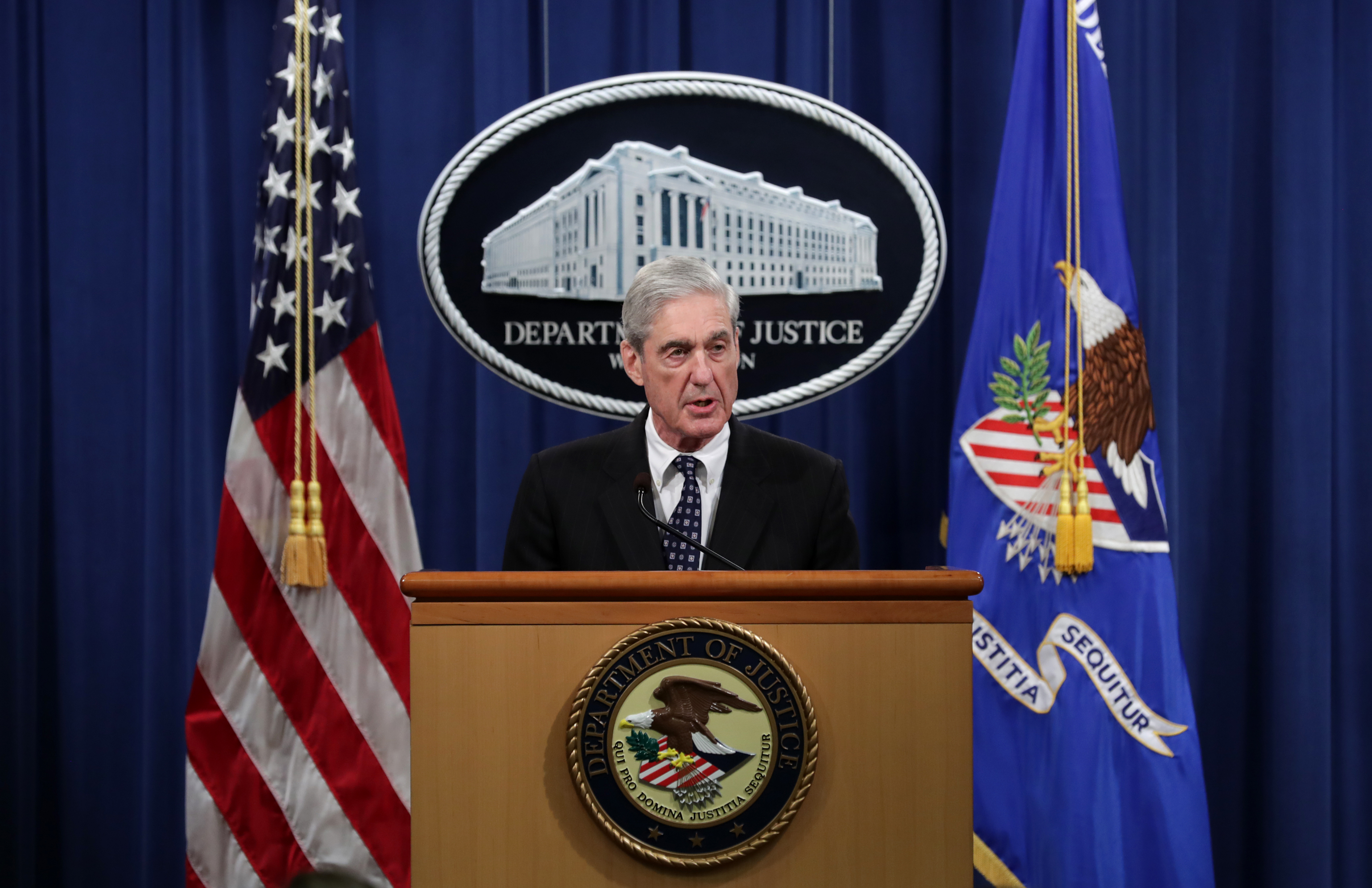Mueller << MUHL ur, >> Robert Swan, III (1944-…), an American lawyer and government official, served as director of the Federal Bureau of Investigation (FBI) from 2001 to 2013. Mueller was sworn in on Sept. 4, 2001. One week later, terrorists attacked the World Trade Center in New York City and the Pentagon Building near Washington, D.C. Mueller then led the FBI in launching an extensive investigation into the attacks. The effort was the largest criminal investigation in the bureau’s history. From 2017 to 2019, Mueller served as special counsel to investigate possible connections between the Russian government and Donald J. Trump’s 2016 presidential campaign.

Before becoming FBI director, Mueller held a variety of positions in the U.S. Department of Justice. He served as U.S. attorney for Massachusetts from 1986 to 1987. He was an assistant to U.S. Attorney General Richard Thornburgh from 1989 until 1990, when President George H. W. Bush named him assistant attorney general in charge of the Justice Department’s criminal division. From 1995 to 1998, Mueller worked in the homicide section of the U.S. attorney’s office for the District of Columbia. Beginning in 1998, he served as interim U.S. attorney and as U.S. attorney in northern California. During the early part of 2001, Mueller served as acting deputy attorney general of the United States.
Mueller was born in New York City on Aug. 7, 1944. He received a bachelor’s degree from Princeton University in 1966 and a master’s degree in international studies from New York University in 1972. He received a law degree from the University of Virginia in 1973. Mueller served in the U.S. Marine Corps from 1967 to 1970 and fought in the Vietnam War. He received a number of honors as a Marine, including the Bronze Star and the Purple Heart.
Mueller became FBI director in 2001. In 2002, Mueller announced plans to reorganize the FBI with an increased focus on the prevention of terrorism. Mueller left the FBI in September 2013 to become a partner in the law firm Wilmer Cutler Pickering Hale & Dorr LLP (WilmerHale).
In 2017, Mueller was named the special counsel to oversee an investigation into possible Russian meddling in the 2016 U.S. presidential election. Investigators were to look into any collusion (secret agreements) between Russian officials and campaign associates of Republican Donald Trump, who was elected president. In April 2019, the Justice Department released a redacted—that is, censored for legal or security purposes—copy of Mueller’s report. In the report, investigators detailed a number of instances in which they sought to discover whether Trump had obstructed justice. The report indicated that while investigators were unable to confirm that Trump had committed obstruction, the report could also not fully prove the president’s innocence. Nevertheless, Trump said the report concluded that he had not colluded with the Russians and that he had not displayed an intent to obstruct Mueller’s investigation.
In late May 2019, Mueller spoke to Congress before stepping down as special counsel. In his testimony, Mueller said that he objected to Trump’s characterization of the report’s findings. Mueller stated that the report had not cleared Trump of wrongdoing. He said that though Department of Justice policy prevented his office from charging a sitting president with a crime, Congress possesses the Constitutional powers to formally accuse a president of serious misconduct. The powers Mueller alluded to include the impeachment process.
See also Federal Bureau of Investigation (FBI).
